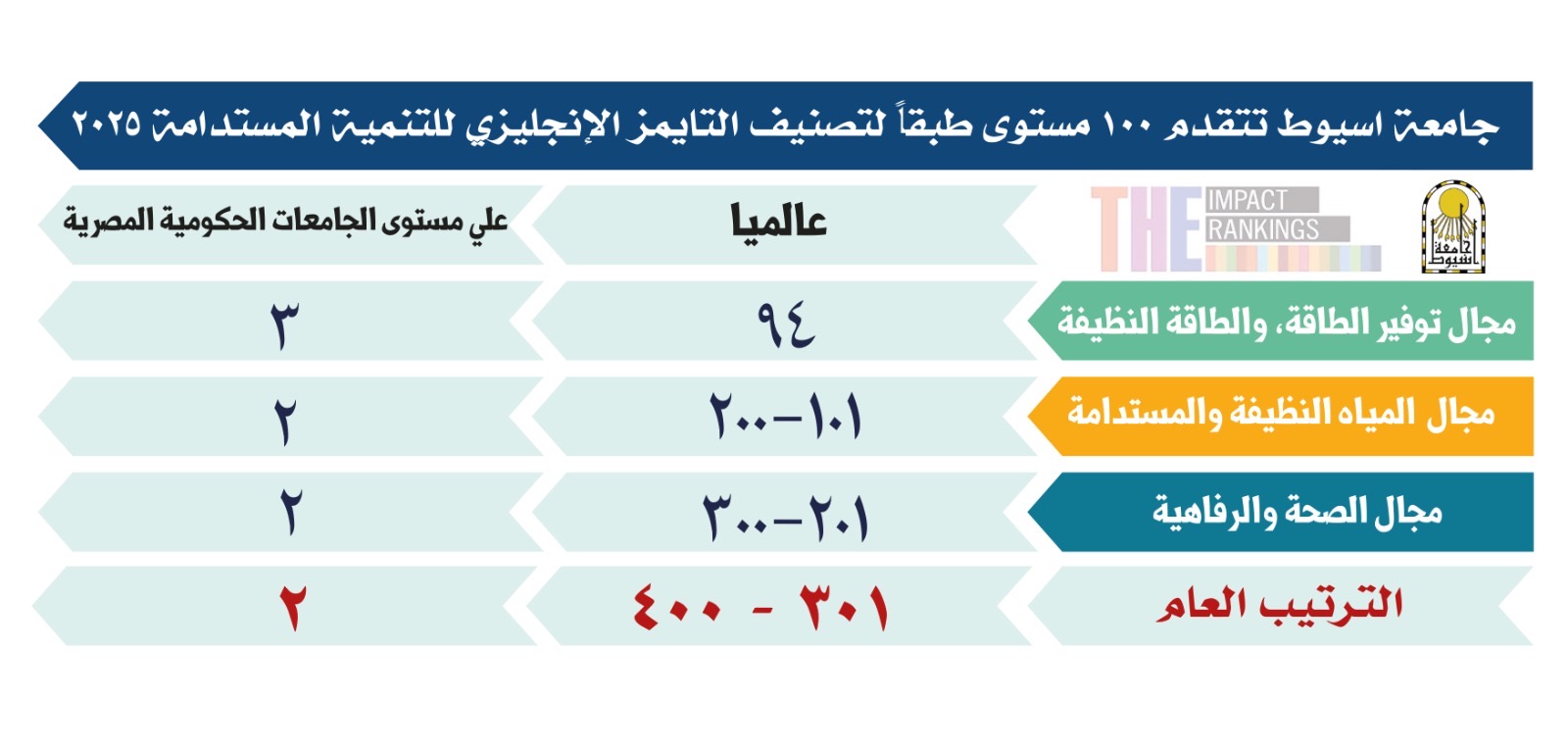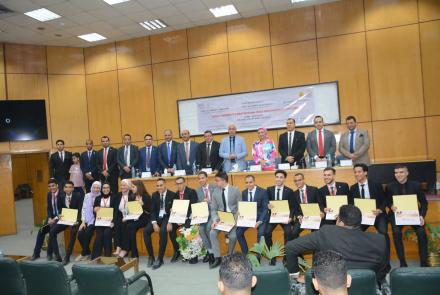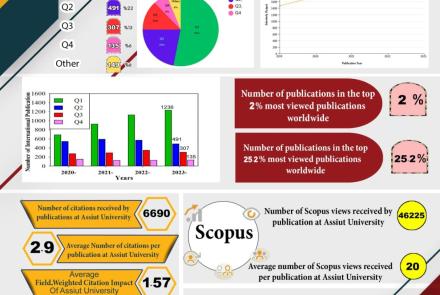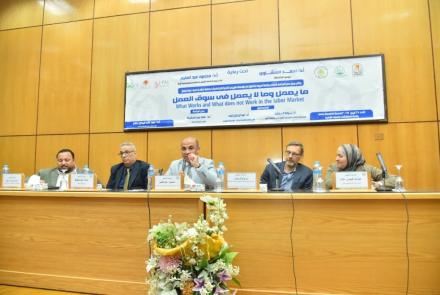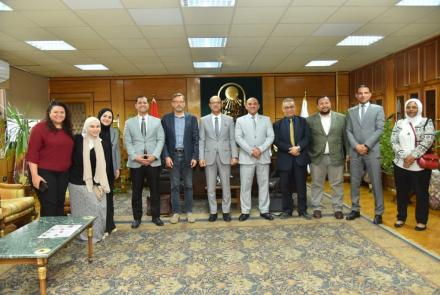Dr. El-Minshawy announces the progress of Assiut University 100 positions in the Times ranking 2025 and achieved the second place in Egypt and 301st globally in sustainable development
- Assiut University ranks 94th in the world and the third in Egypt in the field of energy saving, clean energy،
- Assiut University is in the category (101-200) globally and the second Egyptian in the goal of clean and sustainable water
- Assiut University advances 100 centers and comes within the category (201-300) globally and the second Egyptian in the goal of Health and well-being
Dr. Ahmed El-Minshawy, president of Assiut University, announced that the university has achieved significant progress in the Times English sustainable development ranking for 2025 (the Impact Ranking), which is one of the most important international rankings concerned with measuring the performance of universities according to their achievement of the 17 Sustainable Development Goals approved by the United Nations.
Dr. El-Minshawy explained that Assiut University ranked 301st globally out of 2318 universities representing 125 countries around the world, and also ranked second at the level of Egyptian public universities, after advancing 100 places from its ranking in the previous year.
Dr. Ahmed El-Minshawy stressed that what has been achieved in the Times sustainable development rating reflects the University's clear commitment to applying quality and excellence standards in its various academic, research and community fields, which is the result of an integrated collective effort in which all faculties and sectors participated.
The president of Assiut University pointed out that the university is working according to a strategic plan based on the vision of the state in achieving the Sustainable Development Goals and the strategy of the Ministry of higher education, focusing on expanding institutional partnerships, supporting scientific research aimed at serving community issues, and upgrading educational services in line with international standards.
For his side, Dr. Jamal Badr, vice president for graduate studies and Research Affairs, pointed out that the ranking is based on precise criteria that measure the extent of universities ' commitment to achieving the United Nations Sustainable Development Goals "SDGs", in terms of the quality of scientific research, institutional policies, community interaction, the strength of partnerships, and sustainability-oriented education.
Dr. Omar Mamdouh Shaaban, director of the International Classification Office at Assiut University, stressed that the results of this year's classification showed remarkable progress for the University in a number of Sustainable Development Goals, reflecting the strength of institutional performance and continuous development efforts at various levels.
The university achieved an outstanding performance in the field of energy saving and clean energy, as it ranked 94th globally, and ranked third among Egyptian public universities, which indicates the University's interest in implementing effective policies in the fields of energy efficiency and the use of sustainable energy sources.
With regard to the goal related to clean and sustainable water, Assiut University recorded positive results in the category from 101 to 200 globally, and the second at the level of Egyptian public universities.
In the goal related to health and well-being, the University ranked within the category from 201 to 300 globally, and ranked second among Egyptian public universities, with a progress of 100 centers compared to last year, which reflects the development of Health, Research and educational services related to public health fields.
Dr. Ahmed El-Minshawy stressed that this progress comes as a culmination of the University's strategy implemented by the International Classification Office under the slogan "We deserve the best", which aims to support scientific research, strengthen partnerships and institutional integration, thereby contributing to raising the University's global ranking and serving the Sustainable Development Goals.

